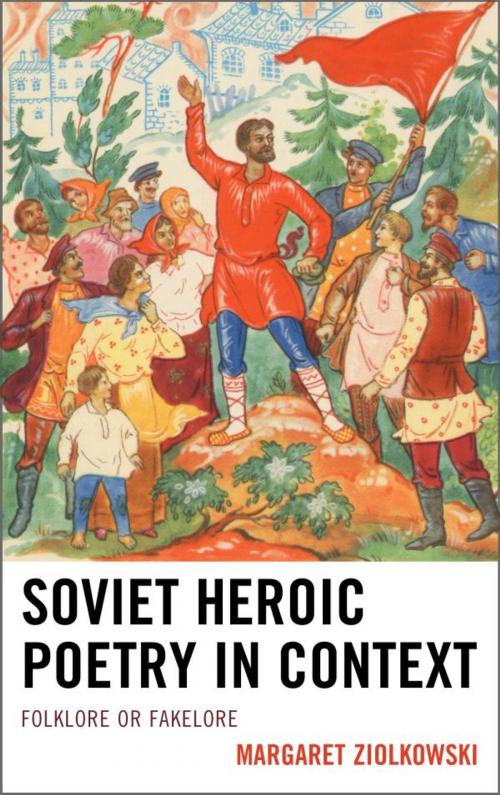Soviet Heroic Poetry in Context
Folklore or Fakelore
Fiction & Literature, Literary Theory & Criticism, European, Russian, Poetry History & Criticism, Nonfiction, History, Asian, Russia| Author: | Margaret Ziolkowski | ISBN: | 9781611494570 |
| Publisher: | University of Delaware Press | Publication: | August 15, 2013 |
| Imprint: | University of Delaware Press | Language: | English |
| Author: | Margaret Ziolkowski |
| ISBN: | 9781611494570 |
| Publisher: | University of Delaware Press |
| Publication: | August 15, 2013 |
| Imprint: | University of Delaware Press |
| Language: | English |
Key issues surrounding the composition and recording of folklore include its frequently intensely political aspect and it preoccupation with chimerical cultural authority. These issues are dramatically displayed in Soviet epic compositions of the 1930s and 1940s, the so-called noviny (“new songs”), which took their formal inspiration to a great extent from traditional Russian epic songs, byliny (“songs of the past"), and their narrative content from contemporary political and other events in Stalinist Russia. The story of the noviny is at once complex and comprehensible. While it may be tempting to interpret the excrescences of Stalinism as unique aberrations, the reality was often more complicated. The noviny were not simply the result of political fiat, an episode in an ideological vacuum. Their emergence occurred in part because of specific trends and controversies that marked European folklore collection and publication from at least the late eighteenth century on, as well as because of developments in Russian folkloristics from the mid-nineteenth century on that assumed perhaps exaggerated proportions. The demise of the noviny was equally mediated by a host of political and theoretical considerations. This study tells the story of the rise and fall of the noviny in all its cultural richness and pathos, an instructive tale of the interaction of aesthetics and ideology.
Key issues surrounding the composition and recording of folklore include its frequently intensely political aspect and it preoccupation with chimerical cultural authority. These issues are dramatically displayed in Soviet epic compositions of the 1930s and 1940s, the so-called noviny (“new songs”), which took their formal inspiration to a great extent from traditional Russian epic songs, byliny (“songs of the past"), and their narrative content from contemporary political and other events in Stalinist Russia. The story of the noviny is at once complex and comprehensible. While it may be tempting to interpret the excrescences of Stalinism as unique aberrations, the reality was often more complicated. The noviny were not simply the result of political fiat, an episode in an ideological vacuum. Their emergence occurred in part because of specific trends and controversies that marked European folklore collection and publication from at least the late eighteenth century on, as well as because of developments in Russian folkloristics from the mid-nineteenth century on that assumed perhaps exaggerated proportions. The demise of the noviny was equally mediated by a host of political and theoretical considerations. This study tells the story of the rise and fall of the noviny in all its cultural richness and pathos, an instructive tale of the interaction of aesthetics and ideology.















